Social media analysis of Brexit: how conversations about Britain's leaving the EU play out online
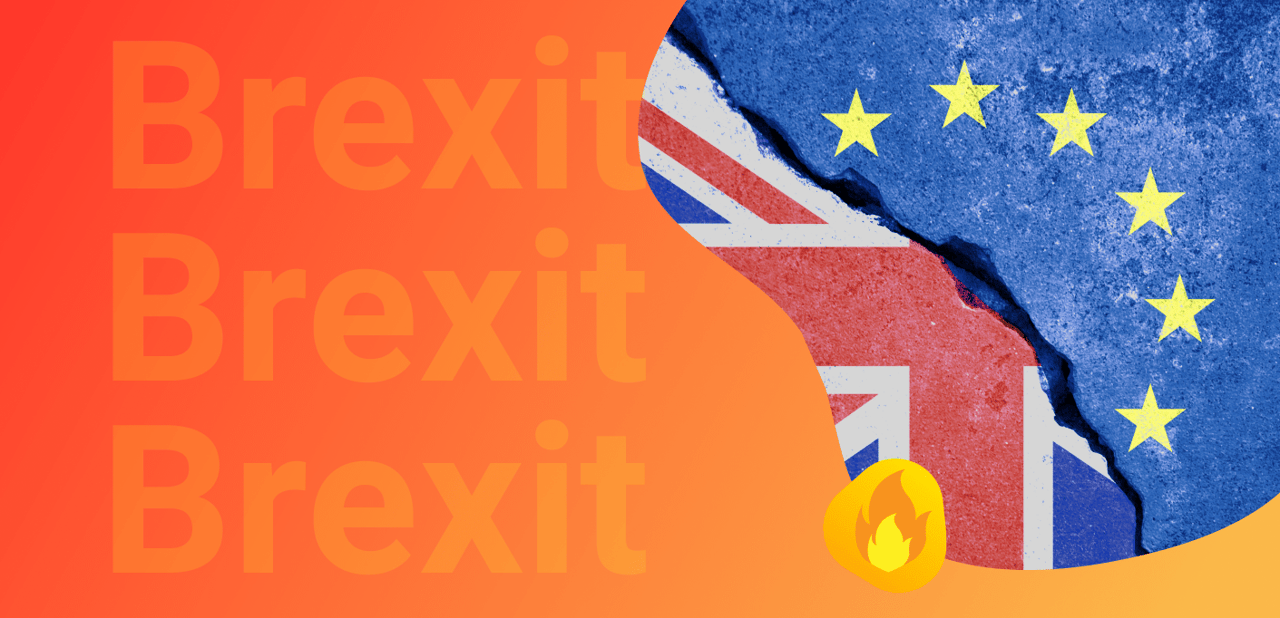
We did an analysis of social media mentions of Brexit with the help of YouScan's social media monitoring platform to show how conversations around the U.K.'s proposed separation from the European Union play out online.
It would come as no surprise to anyone who has kept up with global current affairs to know that Brexit - Britain's withdrawal from the European Union - has been dominating conversations in the United Kingdom and elsewhere in Europe since the 2016 referendum that has put everything into motion.
On Dec. 12, after a general election called after a tumultuous year, the U.K. Conservative Party has won a landslide majority. In his victory speech, Conservative leader Boris Johnson has promised to take the U.K. out of the EU "no ifs, no buts, no maybes" by the end of January 2020.
2019 has been a monumental year for Brexit, with Theresa May's resignation, the election of a new Prime Minister, a snap general election and two key withdrawal deadlines all adding fuel to the conversation.
To make sense of some of these discussions, we took a dive into public mentions of Brexit with the help of YouScan's social media monitoring platform.
Key findings
18,688,199 total number of mentions from March 2019 - December 2019
1,088,908 authors have discussed Brexit in that time period
17 average posts per author: Authors are very passionate about the topic and often post repeatedly about the subject
Online discussions around Brexit mainly bear negative sentiment
Boris Johnson and John Bercow were mentioned most frequently in relation to Brexit, with political leaders Jeremy Corbyn and Nigel Farage also often appearing in conversations.
Authors
Top 10 authors by influence
UK media is topping the list of influential authors with newsroom accounts of the BBC, The Economist and the Daily Mail, as well as media figures such as Piers Morgan and Christiane Amanpour.
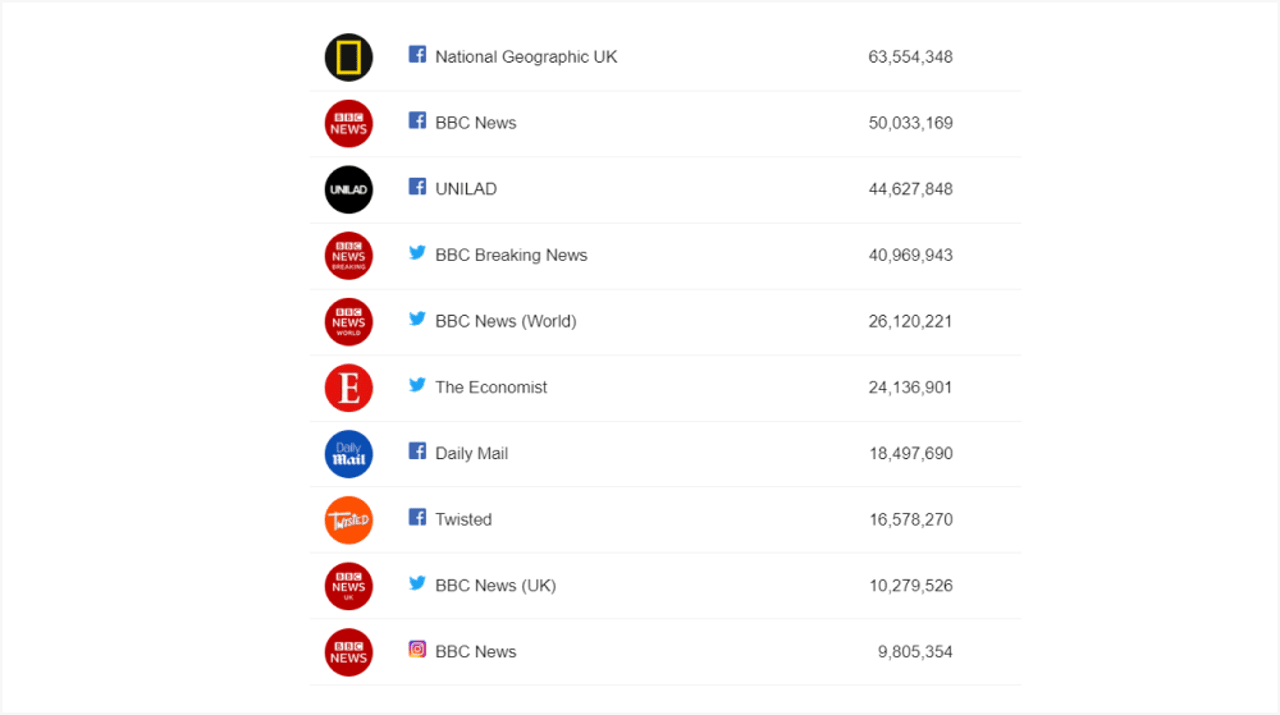

Top 10 authors by engagement
Meme-sharing community groups, partisan communities and UK media are topping the list of authors with the most engaging posts related to Brexit.
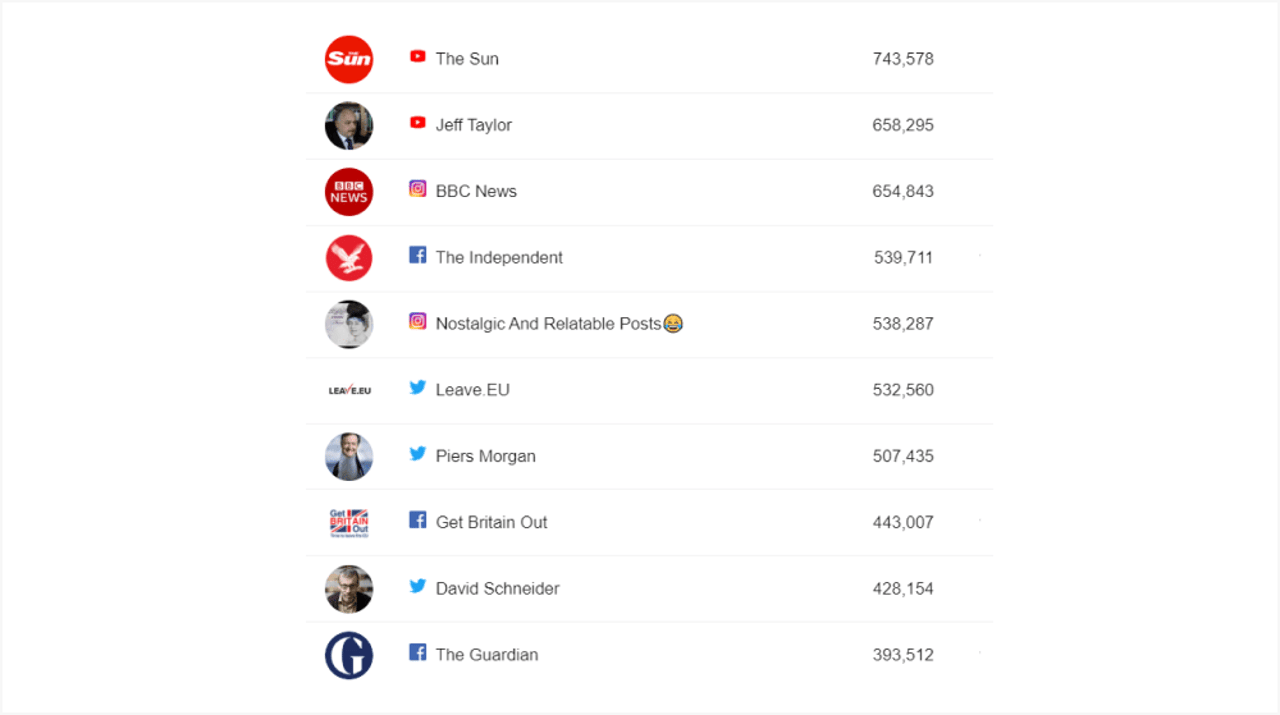

Demographics
Most of the public posts (75%) about Brexit have been published by men, with a smaller share of discussions from female authors (24%).
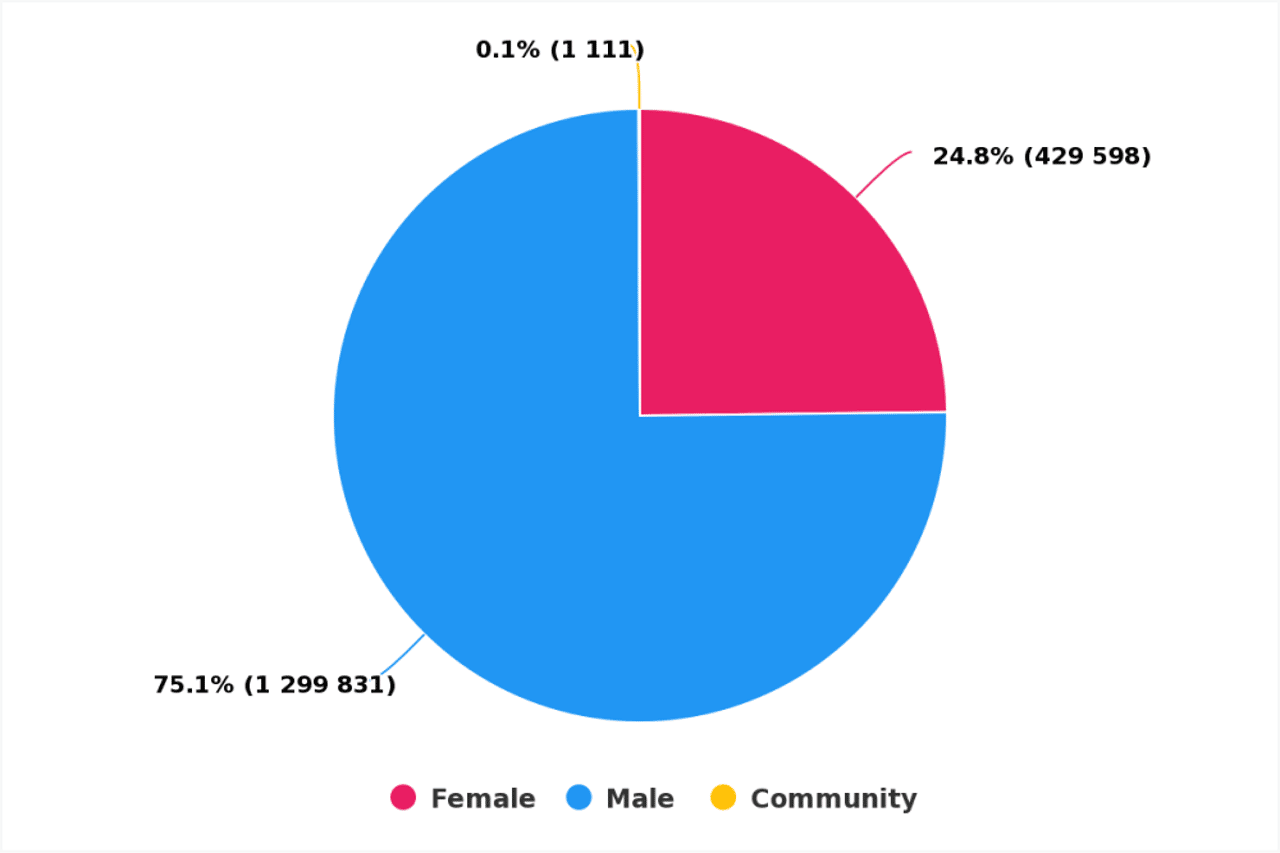

However, discussion spikes were observed around the same time for both female and male authors, especially around the Oct. 16-18 dates (more on the significance of these dates later).
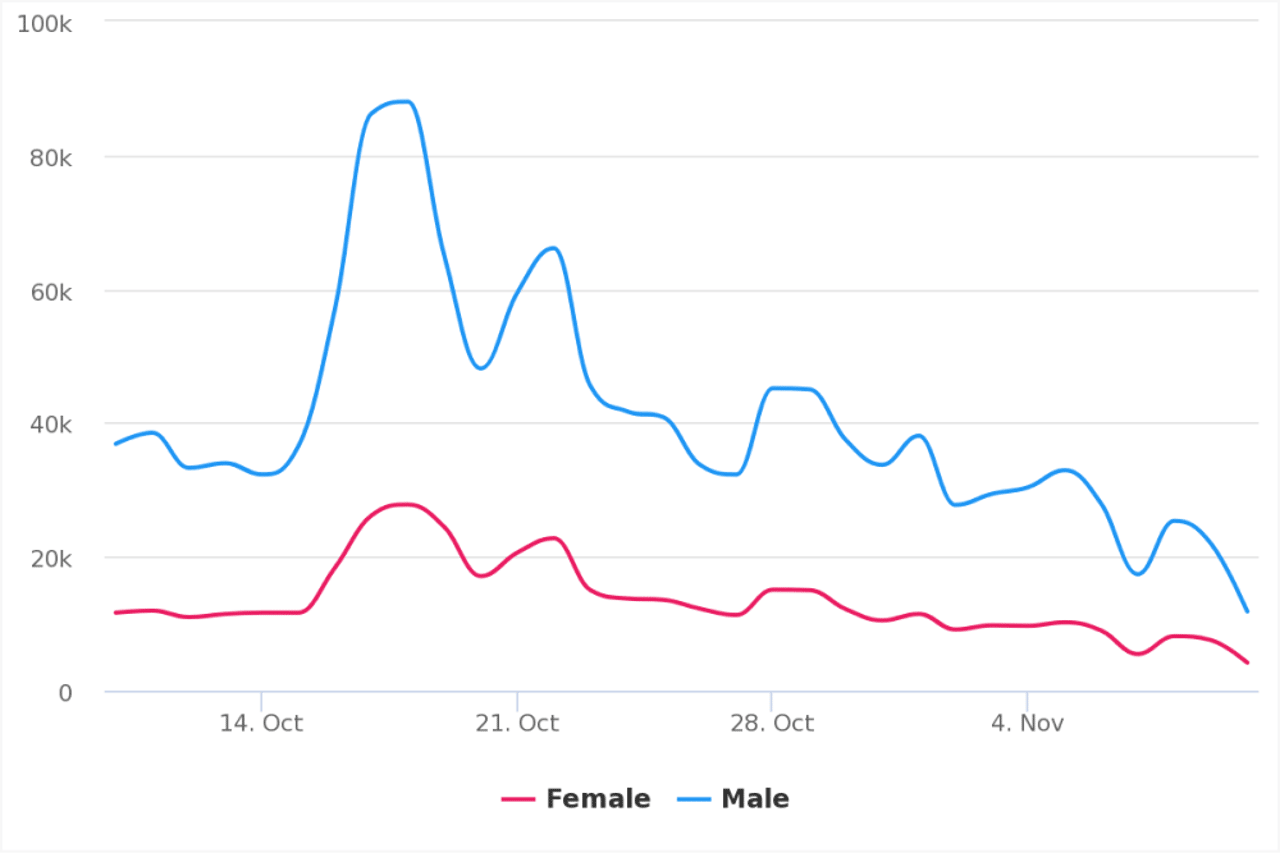

Interestingly, this topic is also more popular in the older demographic, with the majority of conversations taking place in the 45-59 age group.
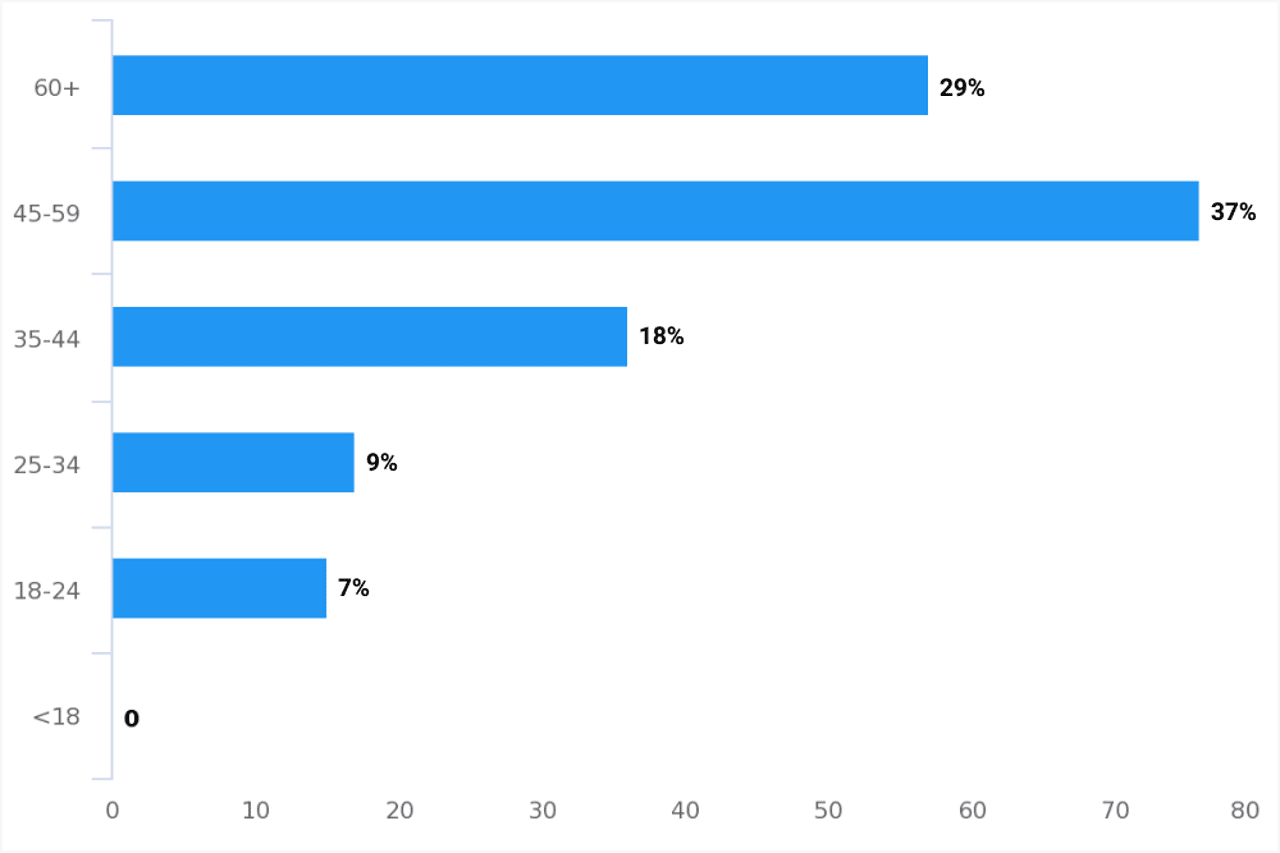

Sentiment
Conversations around Brexit mainly bear negative sentiment, with such tone detected in just over half of the discussions.
Most discussion spikes observed in the September-October period have also been largely negative. The general reasons for unhappy comments is the lack of cooperation among the House of Commons, dissatisfaction with the contents of the proposed Brexit deals, distrust of politicians, etc.
More insight into the kinds of words often used in (negative-sentiment) discussions of Brexit can be gleaned from word clouds around prominent people - more on this in the section below.
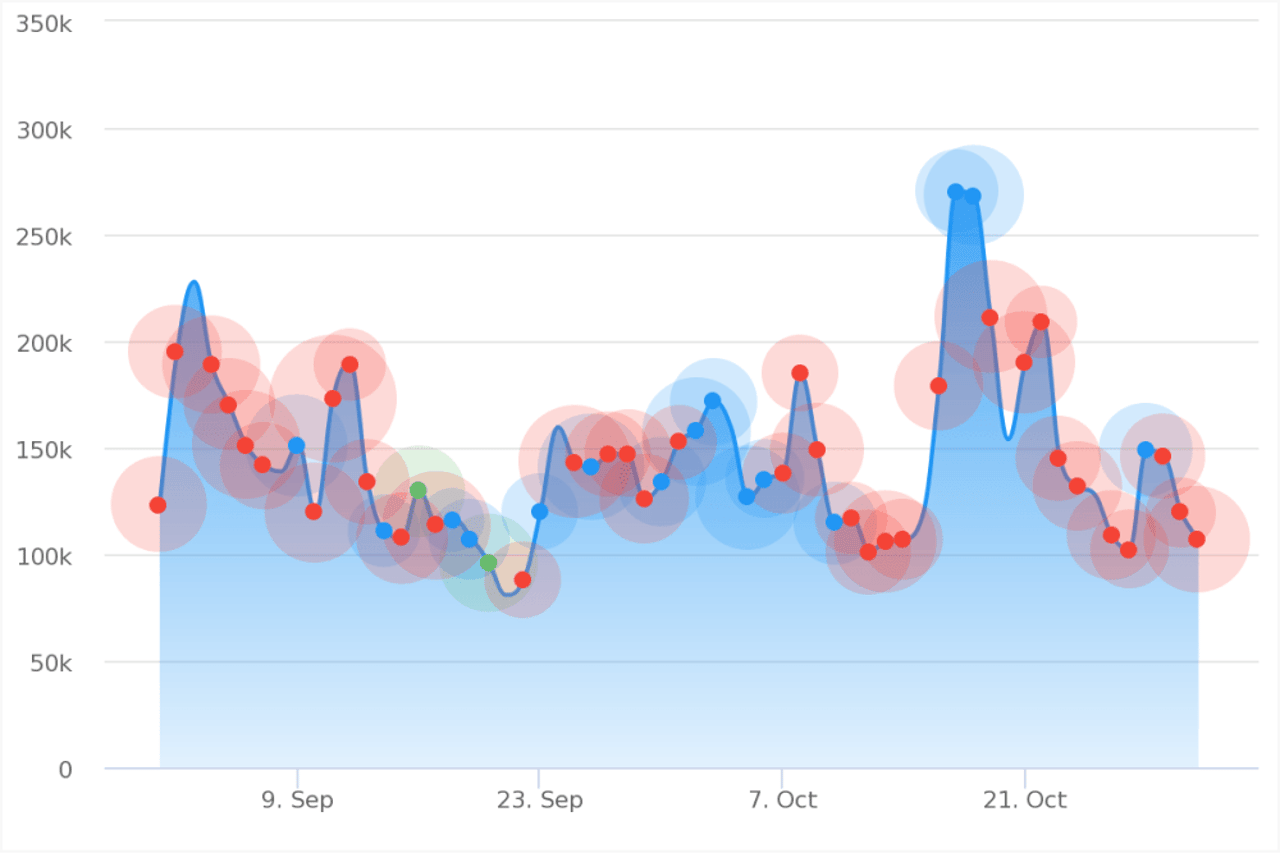

Trending topics
One of the top trends is an online mobilization of the U.K. public through the People's Vote campaign group. The group leverages social networks to call for a public vote on the final Brexit deal. People have been actively sharing an online petition, encouraging others to sign up:
This campaign mainly took place between Oct. 18 and Oct. 24 on Twitter, ahead of the then-looming Oct. 31 deadline for withdrawal and around the Oct. 19 People's Vote march, organized by the same group.
There was some controversy around the number of people participating in the People's Vote march, with claims around inflated attendance numbers from pro-Brexit groups. This has stoked the fires around this conversation for a few days following the Oct. 19 event. As a result, many of the discussions around this topic bear negative sentiment.
Another trending discussion happened on Oct. 28, once news came down about the Brexit deadline extension until Jan. 31, 2020.
This post from European Council President Donald Tusk, announcing the deadline extension, is the most widely shared tweet around the trending discussion. Interestingly, it's possible to track the sentiment distribution around the news as it broke:
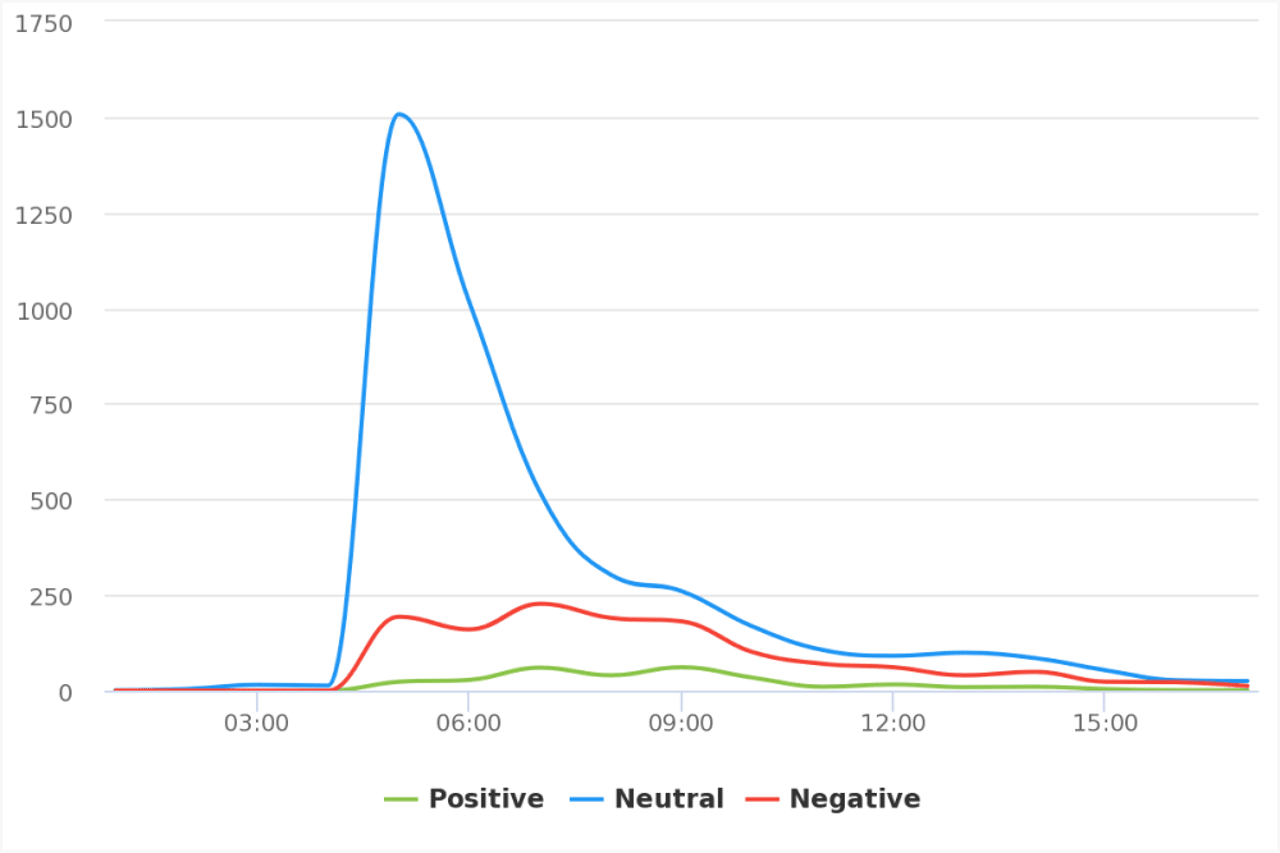

Popular figures
United Kingdom Prime Minister Boris Johnson dominates most Brexit discussions, with most discussions bearing either neutral or negative sentiment (here, we're looking at public conversations that took place in the entire month of October).
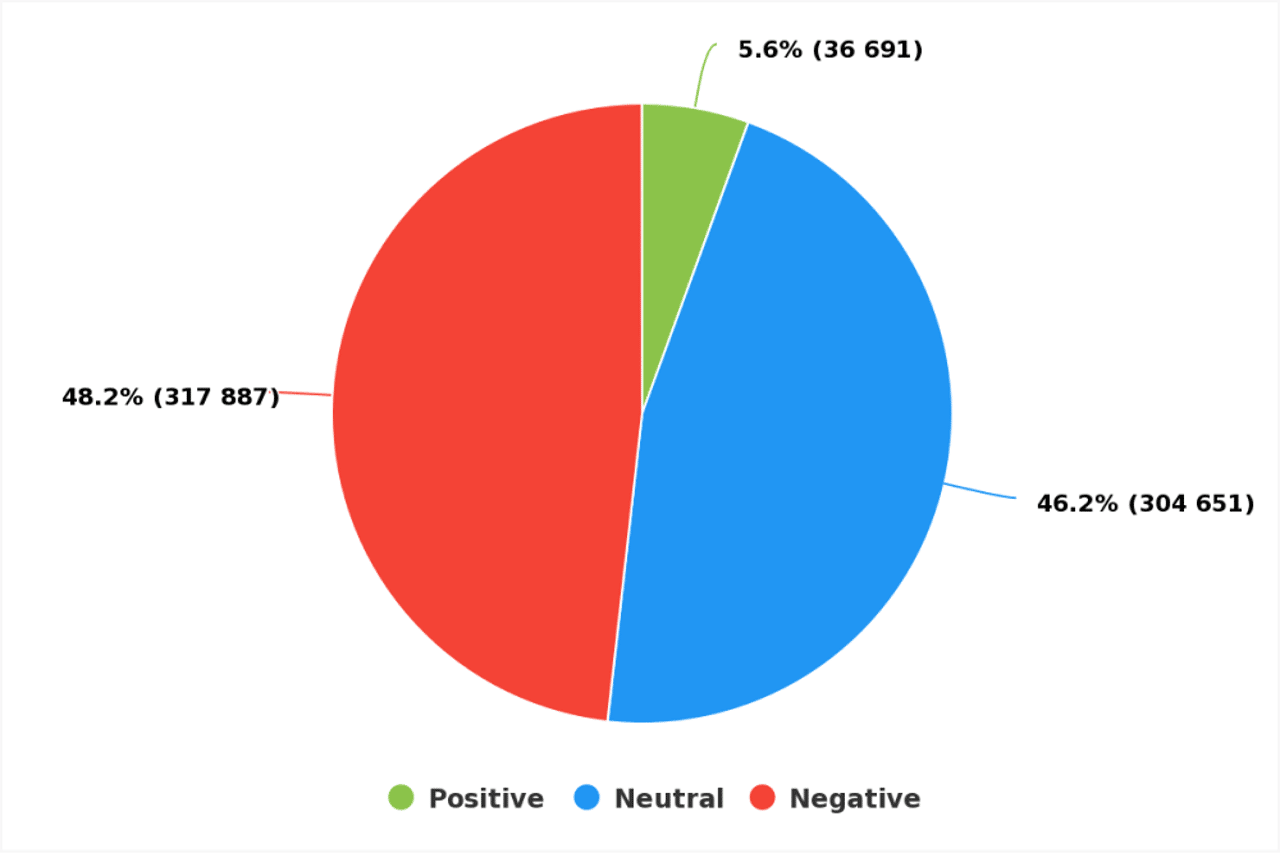

The peak of negativity fell on Oct. 18, when Johnson brokered a Brexit deal that was ultimately unsatisfactory.
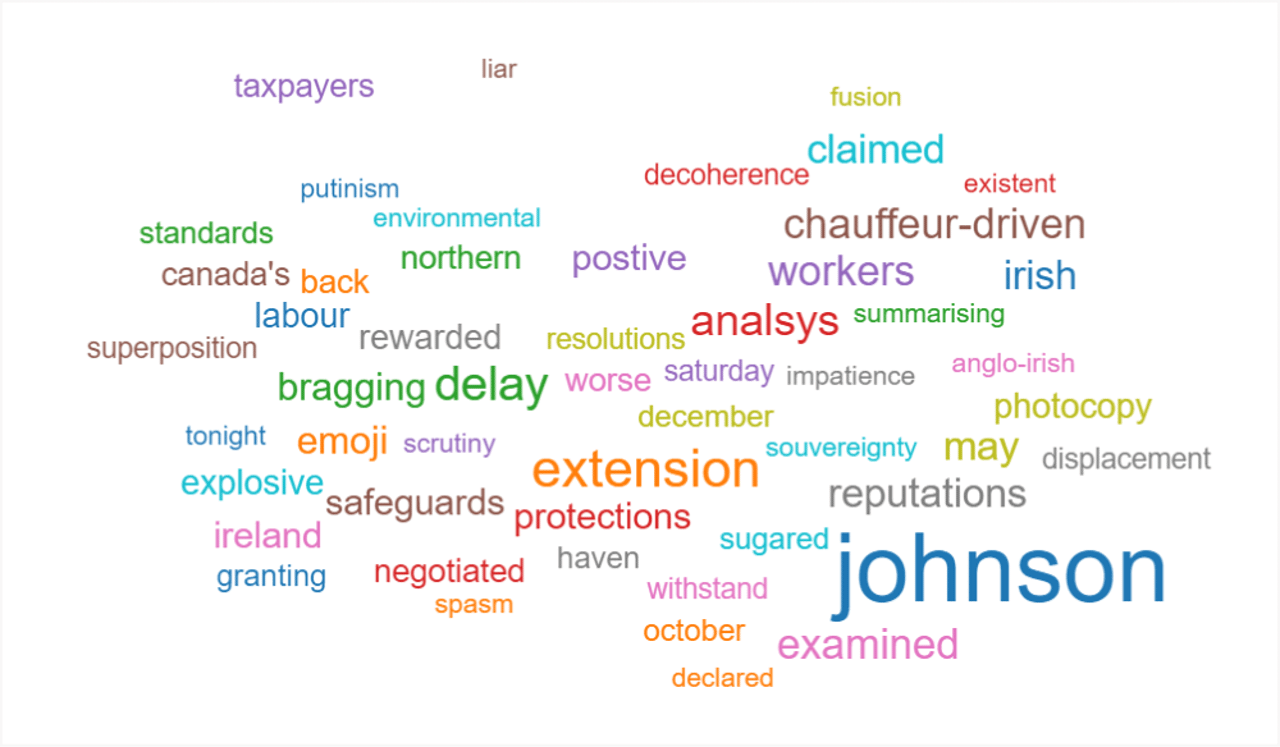

Another name that often came up in Brexit-related discussions is John Bercow, U.K.'s long-standing House of Commons speaker. He retired from this role at the end of October, which served as part of the reason for conversations around him.
Another trending topic that boosted discussions around Bercow was his rejection of the Brexit deal vote on Oct. 21.
Many of these discussions bore negative sentiment.
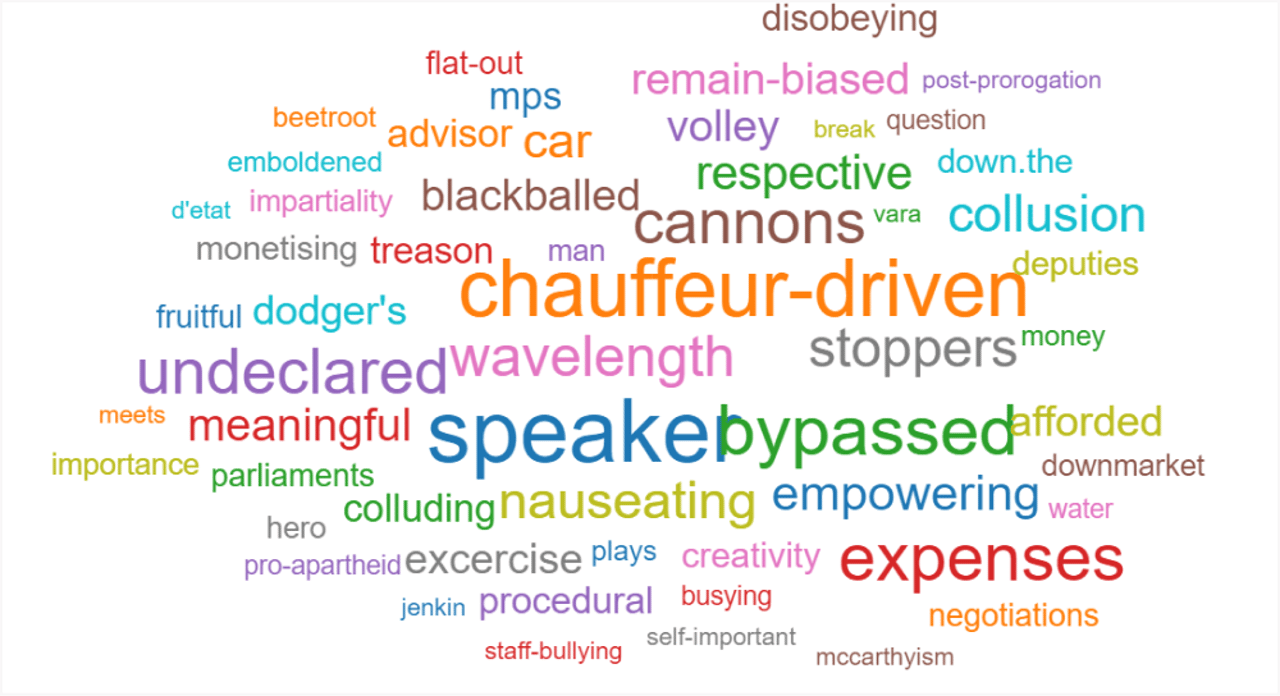

December 2019 general election: Conservative vs. Labour
After being called at the end of October, the U.K. general election was held on Dec. 12. In addition to the obvious hot-button issue of Brexit, discussions revolved around the two main political parties - Conservative and Labour - as well as their respective leaders, Boris Johnson and Jeremy Corbyn.
We took a closer look at each of the contenders separately ahead of the election, as well as immediately after the announcement of results.
The sentiment surrounding the topic of the election was generally negative from the day it was called.
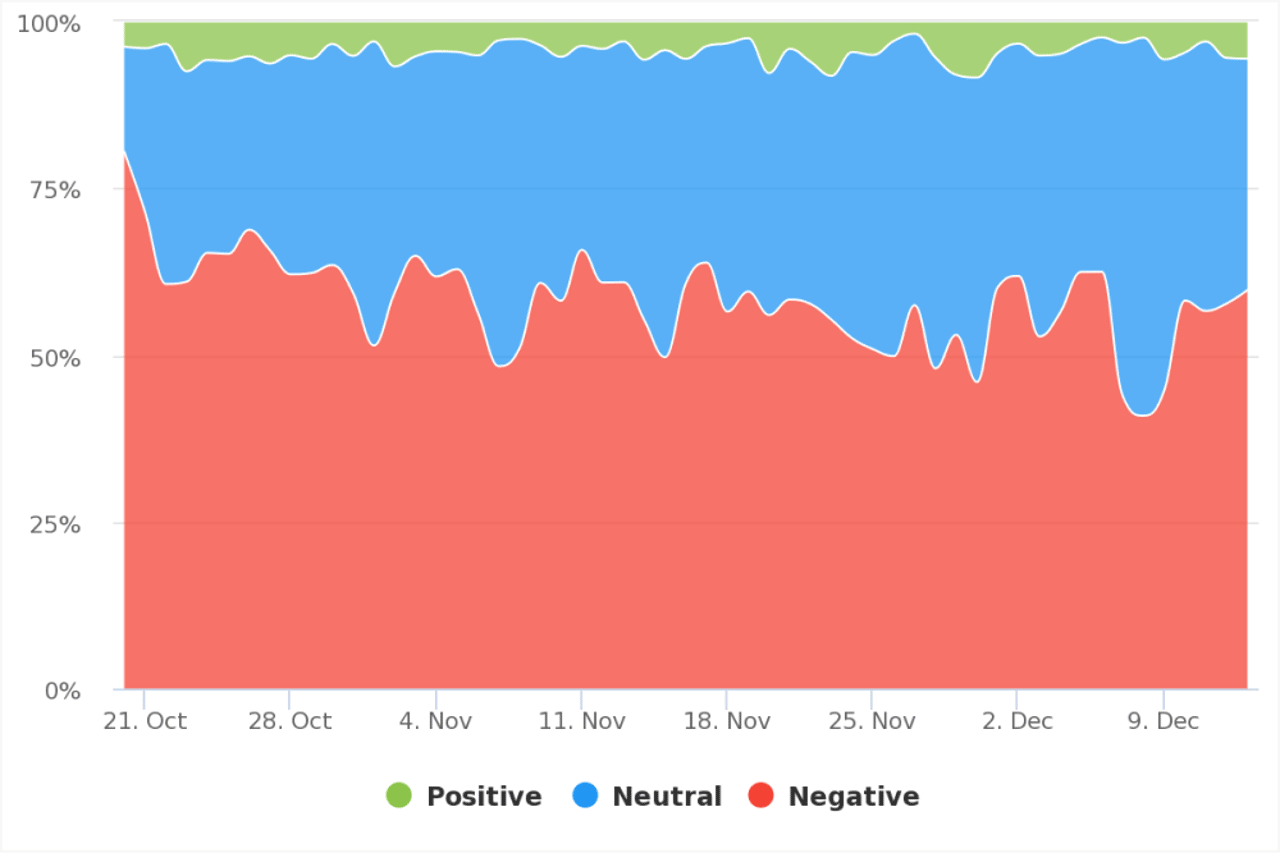

"Conservatives" and "Johnson" feature more prominently in discussions around the election, as shown by this word cloud:
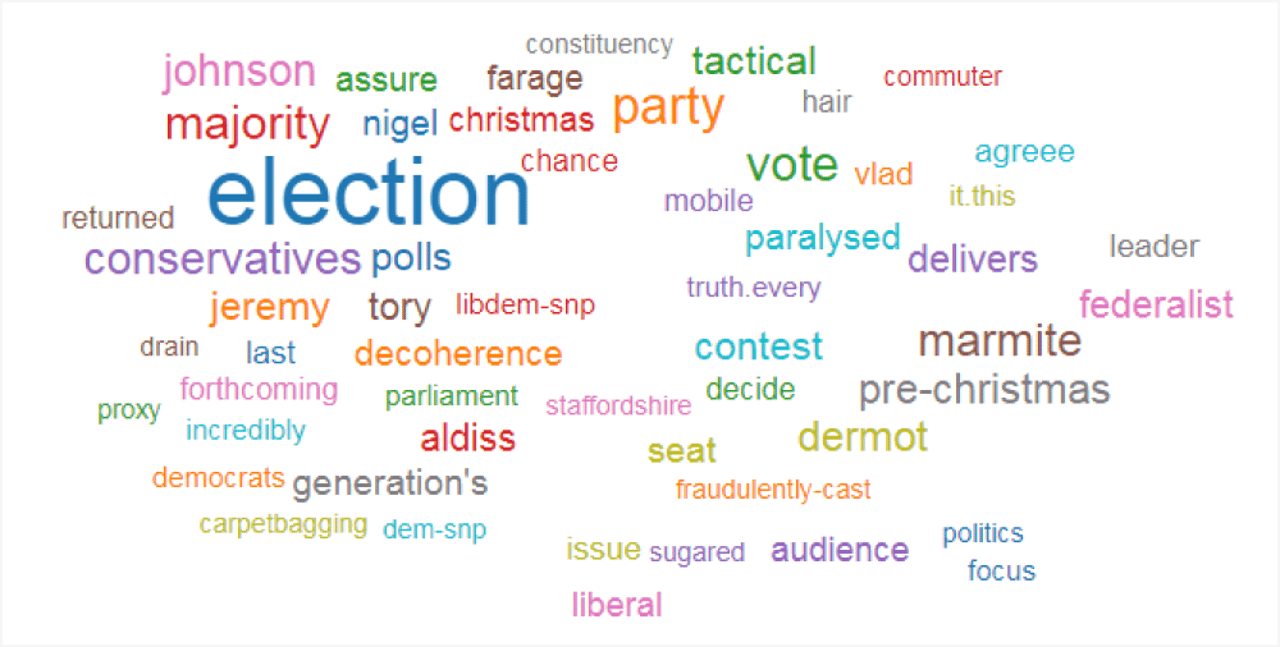

Let's take a closer look at the key political figures in this election.
The Conservative Party:
Since late October, there were 188,414 mentions of the Conservative Party, which received 1.4 million engagements and were 57% negative. While the Conservative Party is often referred to as "Tory" or "Tories" we also delved into the mentions with these names: 372,200 mentions, which received 2.1 million engagements.
In terms of demographics, there were 157,024 total authors (for Conservatives and Tories), 75% of them male.
Conservative leader Boris Johnson's name has been prominent in the Brexit topic for months already, so it has not received a significant spike leading up to the election. However, the campaign slogan, "Get Brexit Done" was more popular in public discussions in the six weeks leading up to the election, as evident in the following graph:
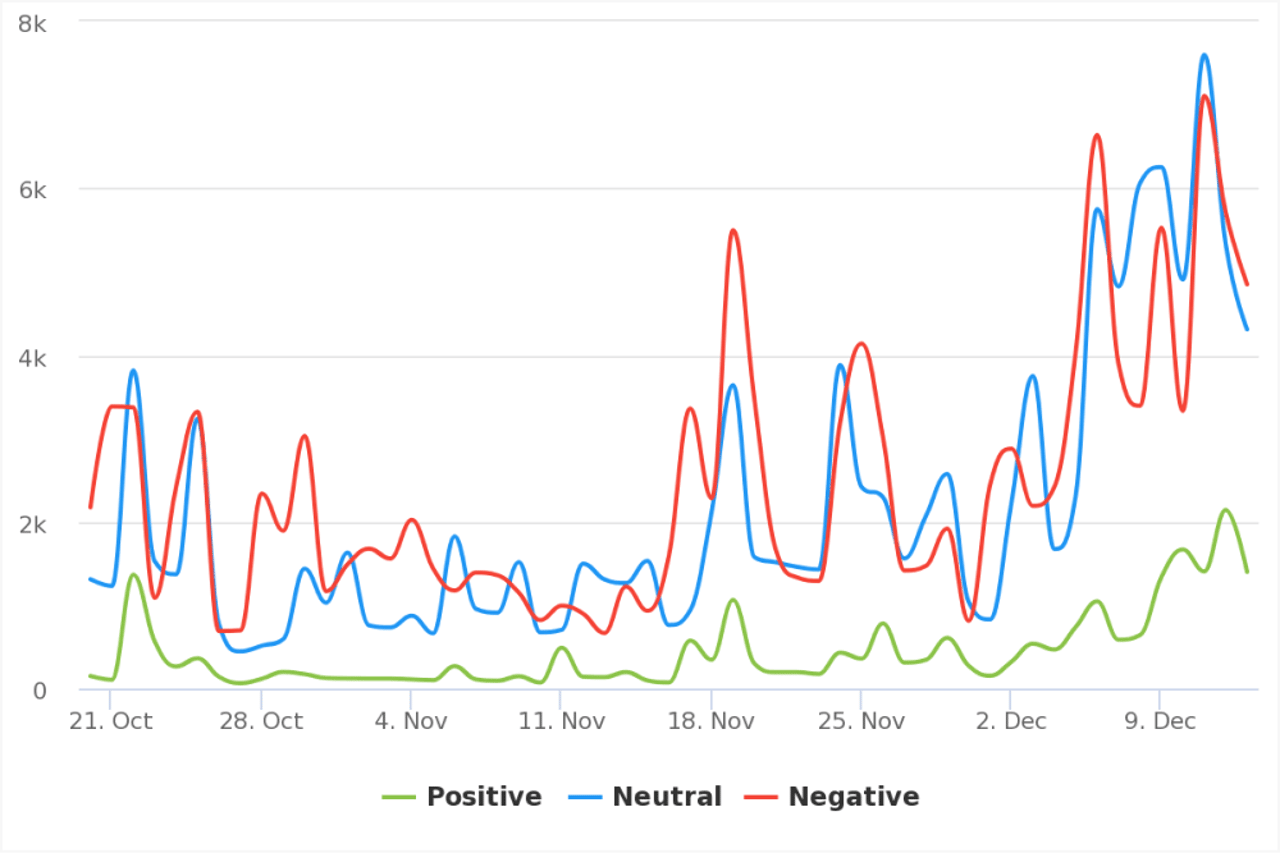

However, the sentiment of the discussions around the slogan, the Conservative Party and Brexit can be gleaned from the word cloud, which depicts words and phrases most commonly occurring in related conversations:
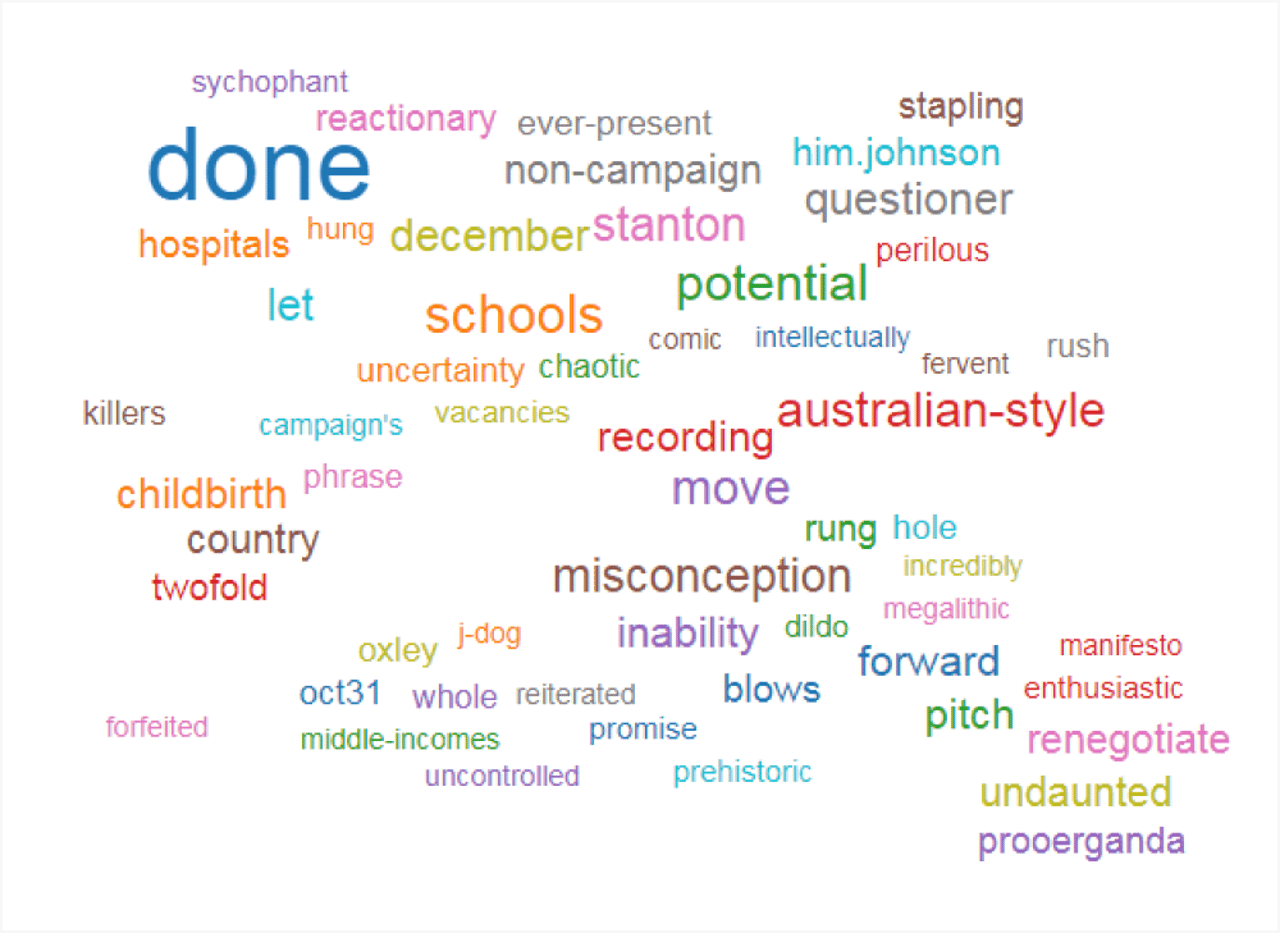

The Labour Party:
Since late October, there were 565,791 total mentions of the Labour Party, 57% of which were negative. The posts were generally quite engaging, with 3.75 million engagements on just half a million posts.
There were 122,231 authors, with nearly three-quarters of them male.
Labour leader Jeremy Corbyn did not benefit from a spike in discussions compared to the previous few months - although he is fairly prominent in Brexit conversations, with 879,852 mentions from 156,200 authors since March 1, 2019.
The Brexit Party
Another major player in post-Brexit vote U.K. politics is the Brexit Party. Officially formed in January 2019 by European parliament member Nigel Farage, the party featured in a few pre-election discussion trends.
The party's official launch announcement videos (mainly on YouTube, posted by various news outlets) from April 12 were widely shared in connection to Boris Johnson rejecting Farage's Brexit pact in early November.
Brands and Brexit
The past three years bore witness to much division within the United Kingdom between not only those who are in favour of the withdrawal from the EU and those against it, but also lack of consensus on the proposed Brexit deals and general distrust of politicians.
So how did this reflect in marketing campaigns of major brands, especially those who stand to experience a change in business when Brexit happens?
Some, like HSBC, have gotten into a bit of controversy over their campaigns. The bank's recent ad campaign, "We Are Not An Island", was interpreted by many as anti-withdrawal, which caused the brand to officially reject that interpretation.
The TV ad features vignettes highlighting activities such as "Tikka Masala eating" and "Colombian coffee sipping" which HSBC spokespeople claim highlight the global nature of the brand. As the HSBC UK spokesperson told the BBC, "We are reinforcing our strong belief that the things that make us quintessentially British are the things that make us inescapably international."
As the HSBC example shows, it's tricky to even appear to take sides in the Brexit conversation, which is likely why few brands have created marketing campaigns around it.
There is a parallel conversation around the business side of Brexit and the uncertainty around the future of European companies with U.K. staff or U.K. companies with pre-Brexit plans to expand to the rest of Europe - however, these discussions are beyond the scope of this article.
One thing is certain: information is power and to be forewarned is to be forearmed, which is why we will continue to monitor social media discussions around Brexit and other major current affairs, to help international brands make informed decisions.
Are you getting actionable insights with YouScan yet? Try a 7-day demo for free!


.png)

.png)
